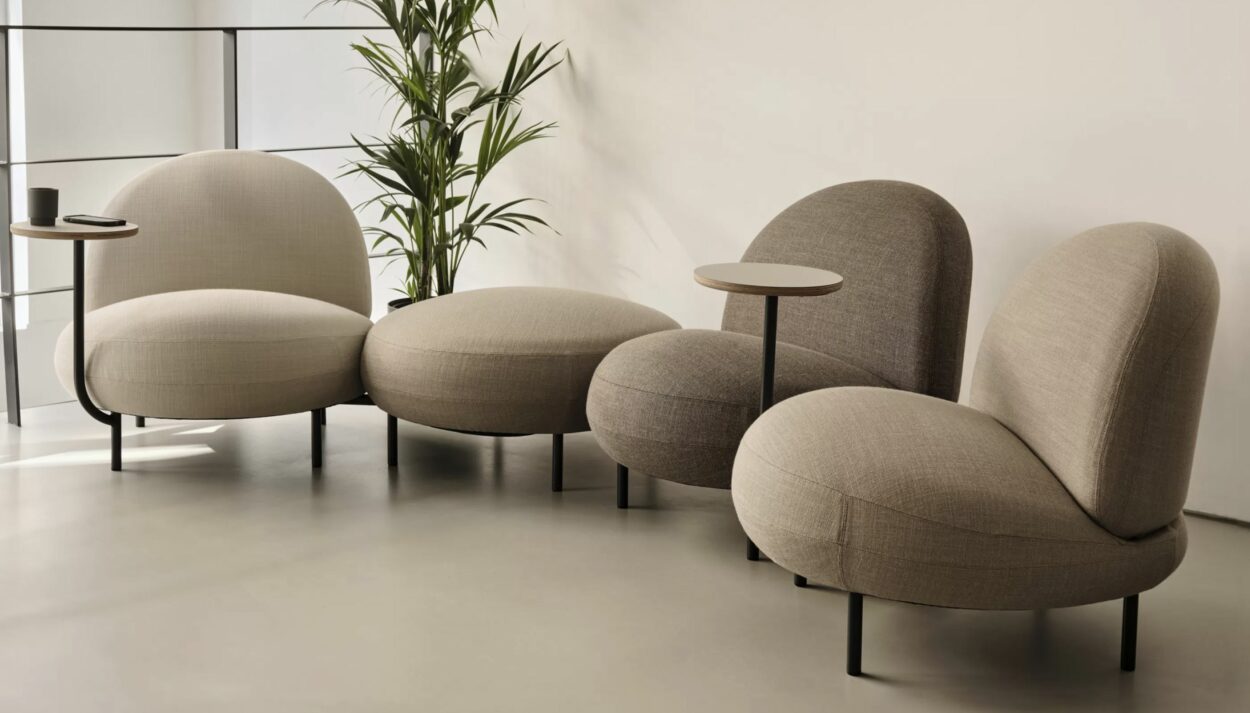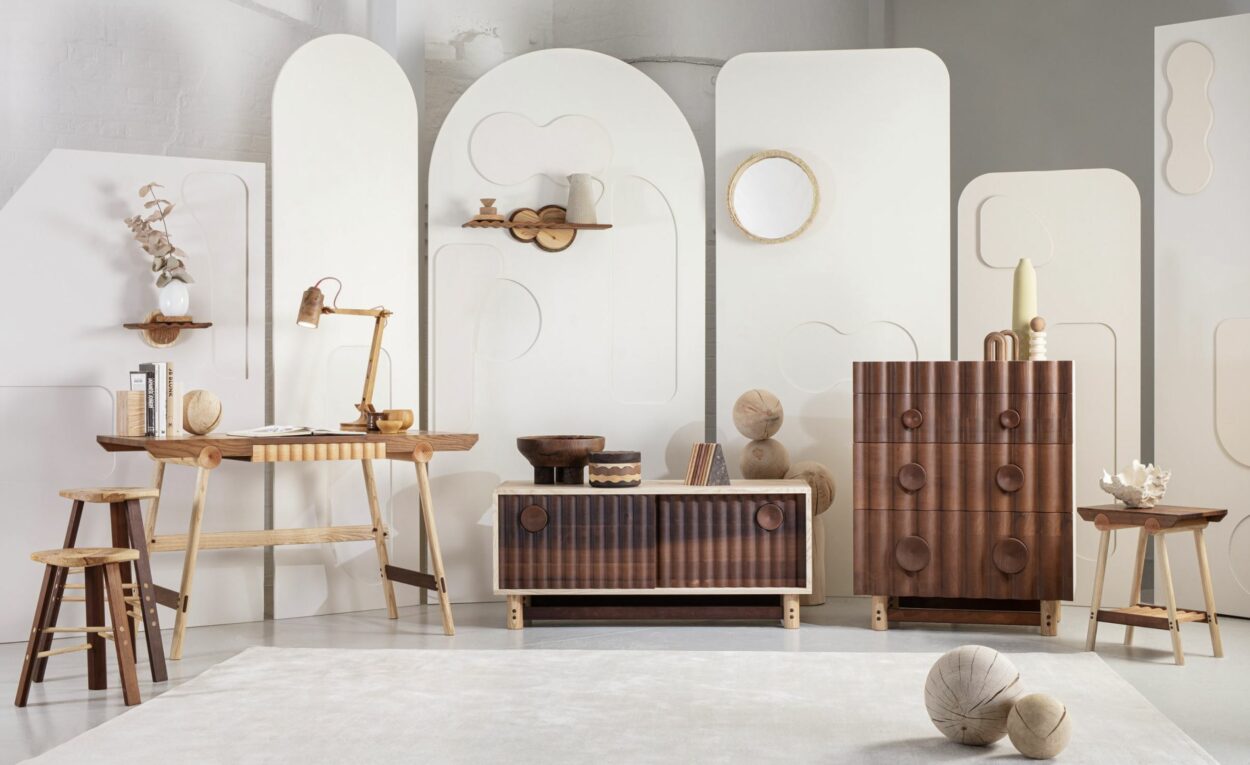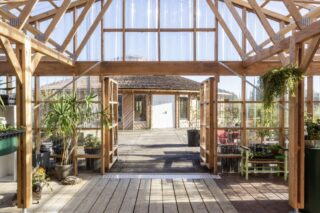Given the current emphasis on sustainability, most companies are striving to enhance their eco-friendly initiatives in some capacity. Here’s a spotlight on companies in the UK that prioritize material reuse, life cycle analyses, local sourcing, community engagement, and innovative design techniques to reduce waste and promote environmental stewardship.
Although the idea of harvesting a tree to create furniture might appear contradictory to sustainability principles, utilizing wood for furniture production is notably more environmentally friendly than the commonly used alternatives of glass, plastic, or metal. According to a review specific to comparing wood with alternative materials, the incineration of timber for energy production can be regarded as CO2-neutral.
The carbon dioxide absorbed by trees during their growth persists even after they’re harvested, and subsequent wooden products can retain this carbon throughout their lifecycle. Responsibly sourcing timber for furniture production thus becomes a means of safeguarding the environment. However, the review pointed out that incorporating materials like metal and plastic for embellishments, adhesives, and finishes in timber furniture production significantly amplifies the environmental impact of the furniture.
Still, wood sits at the forefront of eco-materials, and businesses are actively monitoring the environmental footprint of their offerings, pursuing specific certifications and endorsements from reputable sustainability organizations.
Many opt to disclose Environmental Product Declarations (EPDs) to showcase the eco-friendliness of their products, while others highlight their alignment with the United Nations’ Sustainable Development Goals. Additionally, obtaining designations such as Carbon Neutral Plus, participation in the Furniture Industry Sustainability Programme, B Corp certification, or meeting ISO14001 standards lends further credibility to companies’ sustainability claims.
The following three companies demonstrate diverse approaches to responsible wooden furniture manufacturing, presenting alternatives to the throwaway culture prevalent in modern consumer goods.
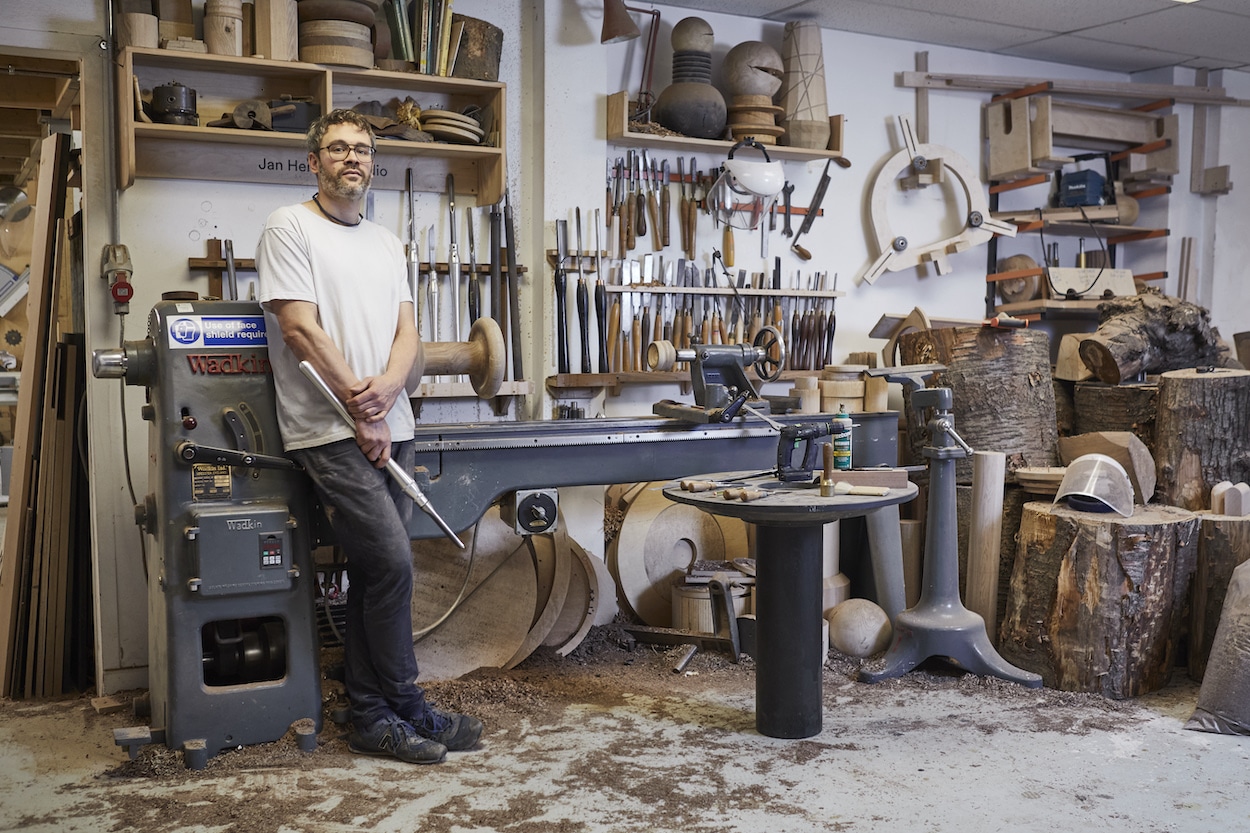
Jan Hendzel Studio: Crafting Sustainable Narratives Through Local Timber, Longevity, and Community Engagement
Jan Hendzel Studio, headquartered in London, prides itself on its fervent appreciation for materials. Wood, in particular, holds a central role in the studio’s design ethos, with its unique history and narrative influencing the outcome of each product. The studio showcases a diverse array of British timber on its website, sourced from various local sites such as Victorian floorboards, roof trusses, canal lock gates, and timber yards across London. By prioritizing local sourcing, Jan Hendzel Studio ensures a complete chain of custody, or provenance, which is highly sought after by those seeking sustainable furnishings.
Emphasizing longevity, the studio’s products are meticulously crafted with replaceable sections, extending the lifespan of each item and facilitating easier transportation.
Throughout the manufacturing process, Jan Hendzel Studio is committed to minimizing waste. Offcuts of rescued timber are donated to the local charity People in Sheds, which conducts workshops for individuals over 50, fostering engagement in woodworking and carpentry. Products crafted in these workshops often find their way to new customers, extending the lifecycle of reclaimed wood beyond the scrapyard.
Each piece of wood carries its own narrative, whether sourced directly from a felled tree or repurposed from a previous life within a home. Through the studio’s production processes, the wood undergoes a transformative journey, witnessing at least two additional purposes.
The Walnut Peng Chair, released in 2023, epitomizes the fusion of tradition and innovation. Combining digitally designed components with traditional woodworking techniques, the chair embodies a harmonious blend of old and new. Jan Hendzel highlights the rarity and exclusivity of English walnut used in the chair, noting that alternative natural stains and ebonizing solutions can achieve a similar finish on high-tannin woods like oak when English walnut is unavailable.
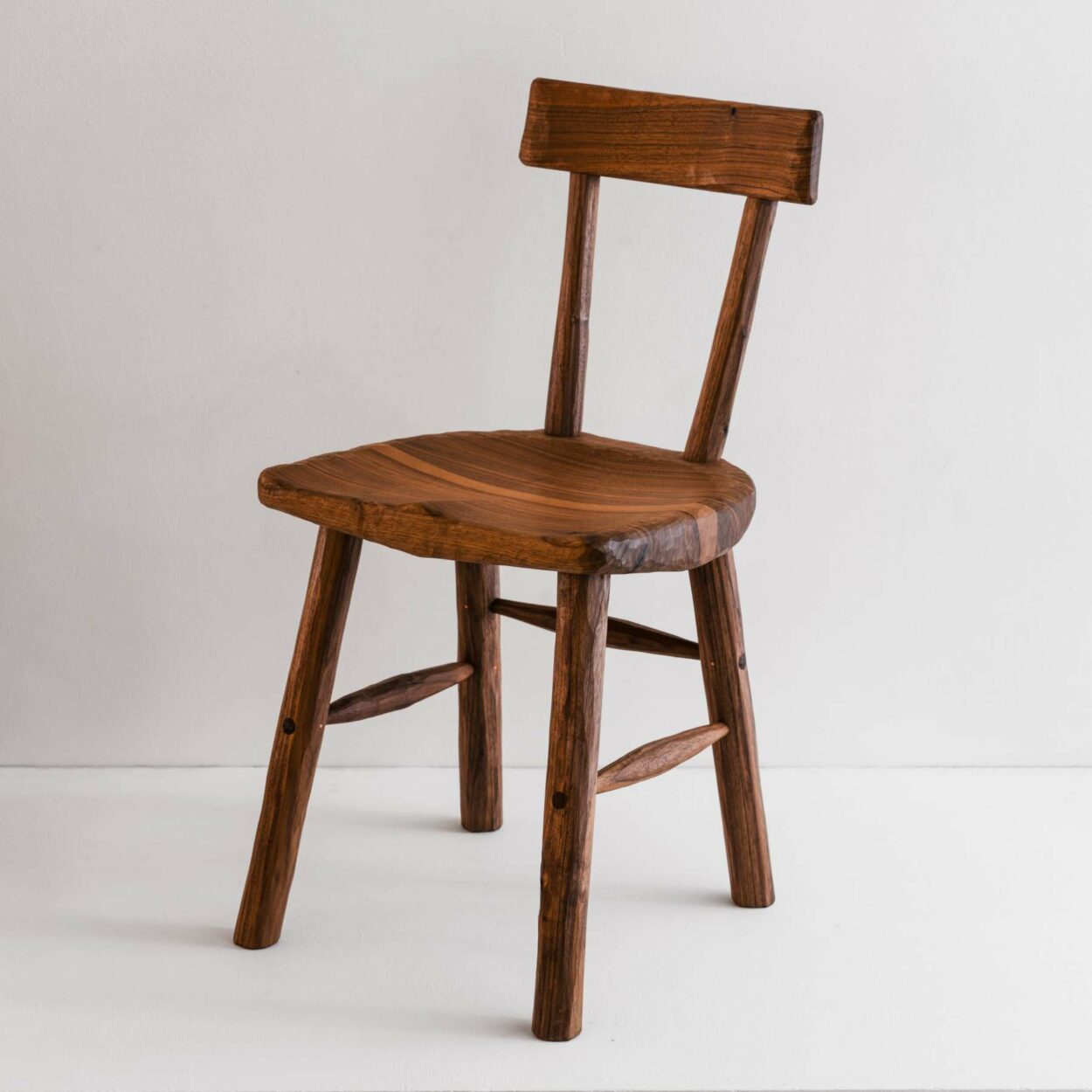
Benchmark Furniture: By-Products, Life Cycle Analyses, and Negative Carbon Footprint
Benchmark Furniture prioritizes sustainability by ensuring that manufacturing by-products are efficiently utilized. Offcuts not suitable for further components are repurposed into biomass fuel for the workshop, promoting continuous production while minimizing waste.
With a steadfast commitment to durability, Benchmark conducts life cycle analyses on core products and provides comprehensive environmental product declarations outlining their environmental footprint from production to disposal. This conscientious approach to materials not only benefits the environment and aesthetics but also contributes to users’ health and well-being through the incorporation of ergonomic, organic shapes in designs.
To further promote sustainability, Benchmark operates a take-back scheme allowing clients to return furniture they no longer need. Items are either donated to charity, refurbished, or repurposed, extending their lifespan and reducing waste.
The AYA collection, introduced in 2023, epitomizes Benchmark’s sustainability ethos. Designed by Foster + Partners, this collection features solid wooden tables and stools designed for disassembly, minimizing waste and celebrating the unique variations in timber. Moreover, the AYA collection boasts a negative carbon footprint, meaning it sequesters more carbon during its lifetime than it emits throughout its production, distribution, and expected use.
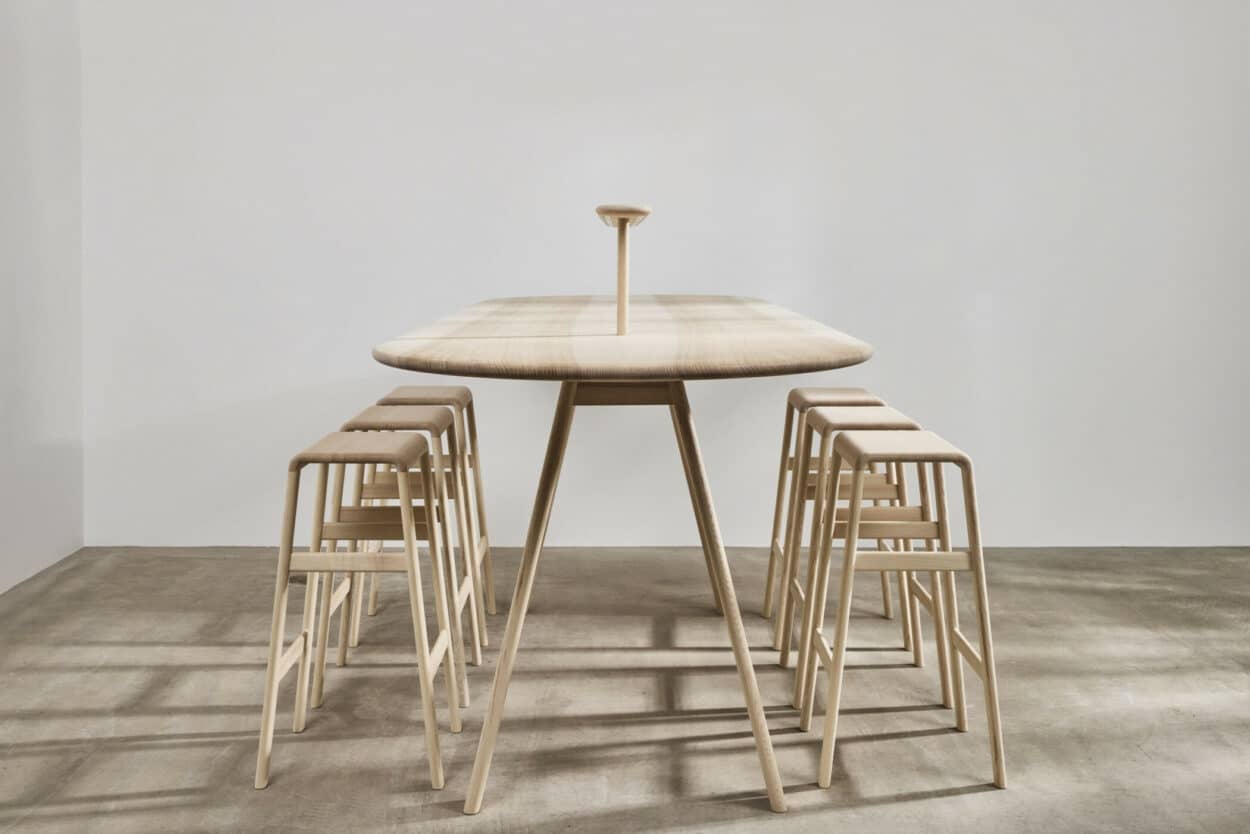
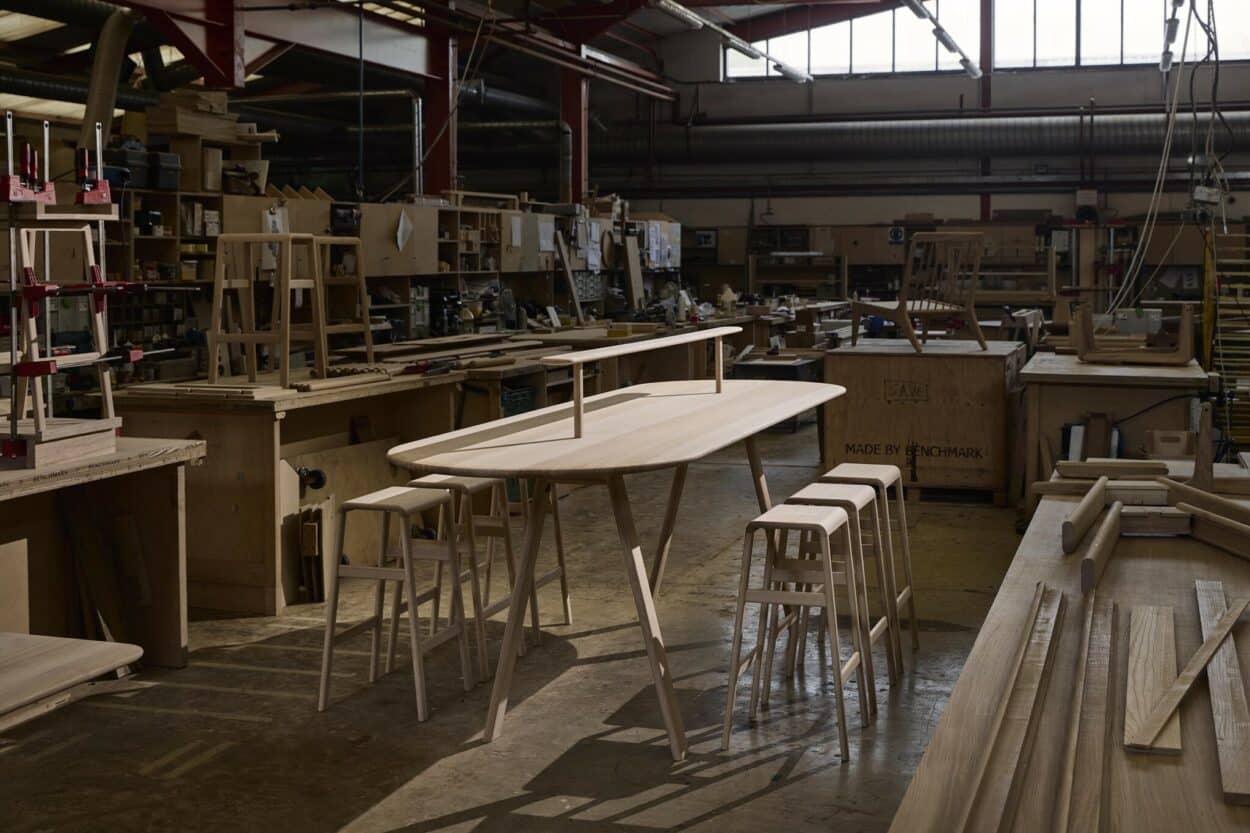
Modus Furniture’s ReWork System & Wooden Frames
Modus Furniture pioneers reuse in its operations through the innovative ReWork take-back system. This initiative allows clients to have their furniture repaired when worn or damaged, effectively extending its lifespan and significantly reducing waste. With a design ethos centered on durability and disassembly, Modus Furniture ensures that its products can be repaired and components replaced indefinitely, challenging the notion of obsolescence.
The company’s Maluma collection, conceived by the esteemed Swedish architectural partnership Claesson Koivisto Rune in 2023, embodies this philosophy. Each piece is meticulously crafted to be easily deconstructed into material components, facilitating reconfiguration for various seating arrangements.
While the collection isn’t exclusively wooden, sustainability remains a priority. The frames of the furniture utilize FSC-certified Spruce plywood with a 50% bio binder, while the avoidance of a steel subframe in favor of molded foam components allows for efficient material separation and reclamation.
